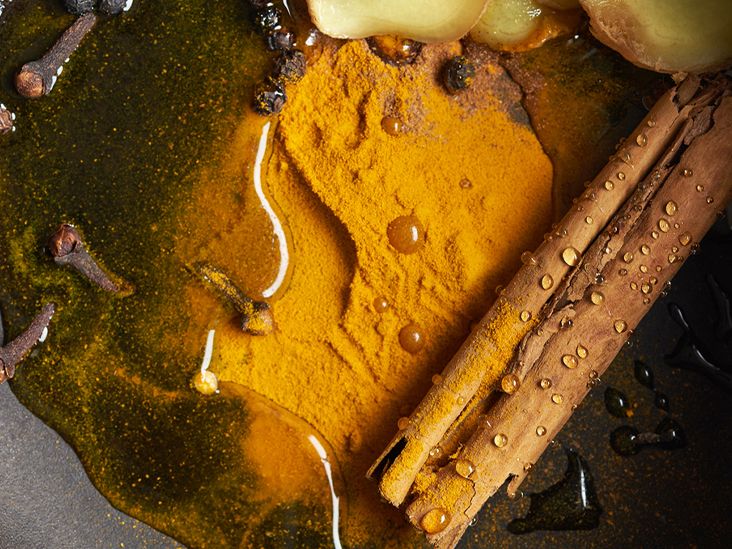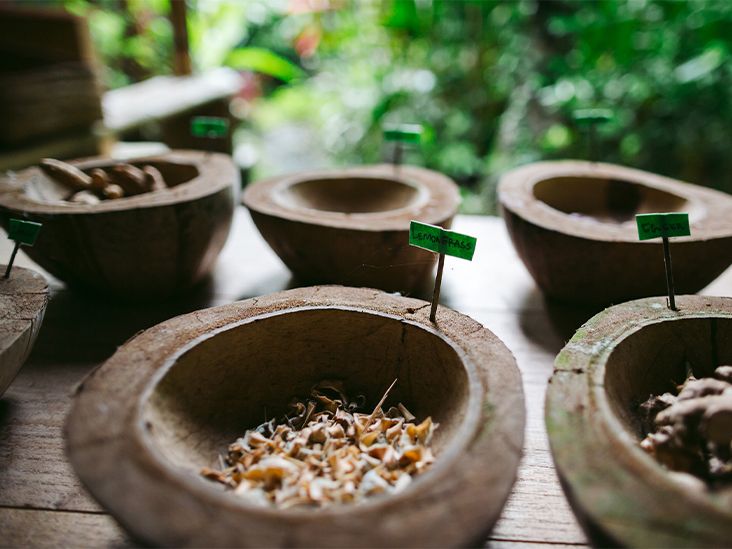
With more than 20 years as a soil steward and food sovereignty activist, Leah Penniman is fighting food injustice at its roots.
She’s an author and a co-founder of Soul Fire Farm in Grafton, New York. Soul Fire Farm is a community farm focused on food sovereignty for Black, Indigenous, and People of Color (BIPOC).
Penniman first came into this work while living in the South End of Albany, New York, a neighborhood classified as a food desert by the federal government.
She found herself trying to find sustainable ways to feed her family fresh food. However, structural barriers stood in the way.
“The corner store specialized in Doritos and Coke. We would have needed a car or taxi to get to the nearest grocery store, which served up artificially inflated prices and wrinkled vegetables. There were no available lots where we could garden,” she says.
With no other options, the family signed up for a community supported agriculture (CSA) share. Penniman recalls walking 2.2 miles to the pickup point.
“We paid more than we could afford for these vegetables and literally had to pile them on top of our toddler [resting in the stroller] for the long walk back to our apartment,” she says.
Penniman and her husband had many years of experience working on farms, from Many Hands Organic Farm in Barre, Massachusetts, to Live Power Farm in Covelo, California.
Soon, the South End community began to ask whether the couple planned to start a farm there. The rest is history.
“We opened Soul Fire Farm, a project committed to ending racism and injustice in the food system, providing life giving food to people living under food apartheid and transferring skills and knowledge to the next generation of farmer-activists,” she says.
“The corner store specialized in Doritos and Coke. We would have needed a car or taxi to get to the nearest grocery store.”
In order to address the legacy of structural racism in the farm industry, Penniman is not only dedicated to food equality, but to educating communities in plant-based medicine.
According to Penniman, Black people’s relationship with plant medicine predates the first written account in 1500 B.C., when ancient Egyptians listed the recipes for over 850 herbal medicines on the Ebers Papyrus.
This relationship continued, even after displacement and enslavement.
“Our knowledge of plants traveled with us in the bowels of slave ships and was kept alive in the root and conjure work of the Black American South, in Harriet Tubman’s deft use of wild plants to keep her underground railroad passengers healthy, and in the natural pharmacies of Orisha worshippers,” she says.
An elegant interplay of spiritual folk wisdom and Western science continues to inspire the herbs that support Black people’s physical, emotional, and spiritual health.
“There are many powerful examples at the intersection of Black freedom and plant medicine,” Penniman says.
One of those examples is cotton.
“Cotton seeds and root were widely known and used by enslaved African women as effective abortifacients, used in small personal acts of agency and resistance against a heinous system and the unwanted pregnancies that resulted from rape and enforced breeding,” she says.
Another example is Harriet Tubman.
“Tubman was a master herbalist and wildcrafter who used her knowledge of plants to heal Black and white soldiers in the Union Army during the Civil War and to keep her passengers safe on the Underground Railroad,” says Penniman.
Harriet’s Apothecary is a healing community offering customized individual and group services to help transform stress and heal trauma specifically affecting BIPOC individuals. They’re committed to continuing the rich healing legacy of abolitionist, community nurse, and herbalist Harriet Tubman.
According to Penniman, Tubman famously cured a dying soldier of dysentery with an infusion of water lilies and cranesbill (geranium), and she carried a sedative made from poppies with her to help children sleep on the difficult, dangerous journey north.
“Wild lettuce was used as a sedative for anti-anxiety as well. [Tubman’s] grandmother taught her these medicines,” says Penniman.
“Tubman was a master herbalist and wildcrafter who used her knowledge of plants to heal Black and white soldiers… and to keep her passengers safe on the Underground Railroad.”
Penniman credits much of this knowledge to Claudia Ford, PhD, associate professor at State University of New York Potsdam, and describes them in-depth in her book, “Farming While Black.”
For Penniman, practicing anti-racist herbalism means giving power, resources, and dignity back to Black, Indigenous, Asian American and Pacific Islander (AAPI), Latinx, and other herbalists of color.
It involves “giving the land and her plants back to Indigenous people,” she says.
An essential part of Black agroecology is honoring Black people’s sacred relationship with soil. For Penniman, it goes back at least to the reign of Cleopatra in Egypt from 69 to 30 B.C.
Research cites a 1949 report by the U.S. Department of Agriculture (USDA), which states that the “great fertility” of the Nile River Valley resulted from the activity of earthworms.
The researchers found that worm castings from a 6-month period weighed almost 120 tons per acre, approximately 10 times the amount of castings on soils in Europe and the United States.
“Recognizing the earthworm’s contributions to the fertility of Egyptian soil, Cleopatra declared the animal sacred and decreed that no one — not even farmers — was allowed to harm or remove an earthworm for fear of offending the deity of fertility,” says Penniman.
As European settlers displaced Indigenous people across North America in the 1800s, they exposed vast expanses of land to the plow for the first time, decimating earthworm populations.
“It took only a few decades of intense tillage to drive over 50 percent of the original organic matter from the soil into the sky as carbon dioxide,” says Penniman. “Agriculture is responsible for 24 percent of greenhouse gas emissions today. This is both an environmental justice and a racial justice issue.”
Penniman and Soul Fire Farm utilize the practices of regenerative agriculture to help fix the damage caused by conventional farming methods. These practices include:
- increasing topsoil depth
- protecting biodiversity
- promoting carbon sequestration, or directing carbon into the ground instead of releasing it into the atmosphere
Penniman notes that George Washington Carver, arguably the most prominent Black scientist of his time, was a pioneer in regenerative farming.
He was one of the first agricultural scientists in the United States to advocate for the use of leguminous cover crops, nutrient-rich mulching, and diversified horticulture.
Carver’s work stands in contrast to some conventional agricultural models that may contribute to:
- climate change
- soil degradation
- income inequality
- inequitable food distribution
You can read more about Carver’s contributions to regenerative agriculture in the book “My Work Is That of Conservation.”
Leah stands by the conviction that decolonization is not a metaphor. It refers to the re-matriation of Indigenous land and life.
“Soul Fire Farm is located on 80 acres of land that historically was stewarded by the Stockbridge-Munsee Band of the Mohican Nation,” says Penniman.
In the 1800s, the Mohican people were forcibly removed from their territory and transferred to reservation in northern Wisconsin. The Tribal Council recently passed an easement granting legal rights for Mohican citizens to use the Soul Fire Farm land for ceremonies and wildcrafting.
“As in years past, all proceeds of our seed sales are remitted to the Mohican Nation to support their cultural work,” says Penniman.
In addition, Soul Fire Farm focuses on three actions:
- regenerate
- equip
- mobilize
Regenerate
Regeneration involves the use of diverse methods to reinvigorate and enliven the farm’s mountainside land. These include:
- Afro-indigenous agroforestry combining crops and forest land
- silvopasture, or managed grazing
- wildcrafting
- polyculture, as opposed to monoculture
- spiritual farming practices
The farm currently produces:
- fruits
- plant medicine
- pasture-raised livestock
- honey
- mushrooms
- vegetables
- preserves for community provisioning
“The majority of the harvest is provided to people living under food apartheid and targeted by state violence,” says Penniman. “The buildings on the farm are hand-constructed, using local wood, adobe, straw bales, solar heat, and reclaimed materials.”
Equip
Soul Firm Farm annually equips hundreds of adults and youths with land-based skills in Afro-Indigenous Farming Immersion and workshops. These programs provide students with the skills needed to reclaim leadership as farmers and food justice organizers in their communities.
“Using land as a tool to heal from racial trauma, we work to reverse the dangerously low percentage of farms being owned and operated by people of color and increase the leadership of people of color in the food justice movement,” says Penniman.
According to a survey on farmworker demographics in the United States by the National Agricultural Workers, only 1.7 percent of farms have Black producers.
Of those working the land in the United States, 83 percent are Hispanic. However, only a fraction of farms are operated by Latinx owners.
According to Penniman and the Northeast Farmers of Color Land Trust, white landowners control between 95 and 98 percent of the farmland in the United States and nearly 100 percent of farmland in the Northeast. They also receive over 97 percent of agriculture-related financial assistance.
Through the Soul Fire Farm Fellowship Program, graduates receive ongoing support in the form of:
- access to resources
- access to land
- funding
- mentorship
- a platform for their work
Mobilize
Soul Fire Farm mobilizes the public to create a racially just food system.
“We collaborate with regional, national, and international food sovereignty coalitions to advance reparations, establish action platforms, and work on campaigns for farmer survival and dignity,” says Penniman.
This involves:
- speaking at conferences
- publishing articles and book chapters
- arranging workshops for activists
- sharing actionable methods for dismantling racism in the food system
- increasing community food sovereignty
According to Penniman, BIPOC farmers need protections and supports that address the U.S. history of land and labor theft, along with inequities in access to:
- land
- credit
- training
- technical assistance
- insurance
- natural and financial resources
These protections will lead to investment in the nation’s soil quality, climate stability, ecology, and public health.
White landowners control between 95 and 98 percent of the farmland in the United States.
-Northeast Farmers of Color Land Trust (NEFOC)
Penniman suggests the “three Cs” approach to avoid appropriation and respectfully engage with African Diasporic Herbalism.
The three Cs stand for:
- Consent: free, prior, and informed consent of the craftsperson or Indigenous or local community
- Credit: acknowledgement of the community of origin and source of inspiration
- Compensation: monetary or non-monetary payment for goods, services, and intellectual, emotional, or physical labor
Go further
Learn more about the impact of Penniman’s work in the Soul Fire Farm annual report.
Want to get involved? Check out Penniman’s Take Action Guide.
When it comes to empowering people on the road to healing, Penniman suggests three things:
- Propagate and share.
- Protect your lungs.
- Sing to your plants.
Propagate and share
Perennial herbs demand generosity, says Penniman. Most need to be divided every few years to stay healthy and avoid overcrowding.
How to do it
- Divide plants in cool weather when they’re at their peak of health. Don’t wait until they become overcrowded or stressed.
- Start by carefully digging up the entire mother plant, then separating the root ball into 4 or more sections. Many root types simply pull apart, but tubers and taproots need to be sliced apart with a sharp knife.
- Replant a section 20 to 25 percent of the size of the original plant back in place. Transplant the other portions in your garden or offer them to friends.
- Provide the plants with ample organic matter and water to help them settle back into the soil.
Pro tip: Most herbs need to be divided every several years, including:
- echinacea
- bee balm
- yarrow
- lady’s mantle
- wormwood
- rhubarb
A few species don’t tolerate division, including lavender and sage.
Support your lungs, especially during the pandemic
Inhaling steam is a powerful way to clear respiratory ailments. Use one of the following herbs to get started:
- eucalyptus
- thyme
- rosemary
- peppermint
- clove
- lavender
How to do it
- Fill a large pot with 1 liter of water and 25 grams of your chosen herb.
- Heat until simmering.
- Pour the infusion into a bowl.
- Cover your head and the bowl with a towel.
- Close your eyes and inhale the steam for 10 to 15 minutes, or until the preparation cools.
Sing to your plants
“We are a singing people,” says Penniman. “Whether working the fields of our ancestral homelands as free bodies or toiling under enslavement, we have maintained our souls through our voices. We have used our song traditions to remind us of home, to keep our spirits high, to express our discontent, and to plan resistance and rebellion.”
Many African songs are in a call-and-response format. The caller sings a verse and the chorus responds. This format promotes dialogue, inclusion, and improvisation, says Penniman.
“While many of our songs are rooted in a specific religious tradition, others are decidedly secular,” she adds. “Work songs are an inclusive starting point for elevating the soul energy on your farm.”
“We are a singing people. Whether working the fields of our ancestral homelands as free bodies or toiling under enslavement, we have maintained our souls through our voices.”
As important as it is, food sovereignty is so much more than healthy food distribution.
It involves the freedom to practice the herbalism and access the wisdom of the African diasporic tradition.
It includes honoring the soil as sacred through regenerative practices that find their origins in prehistory, practices championed by some of the most prominent Black leaders of all time.
It means putting land back into the hands of those it belongs to, fostering a spiritual connection to that land through mutual care.
Priscilla Ward is a D.C.-based writer, running enthusiast, and music lover, currently dreaming of her next international travel destination post-quarantine. She’s also the founder of BLCKNLIT, amplifying Black culture through storytelling and events.



